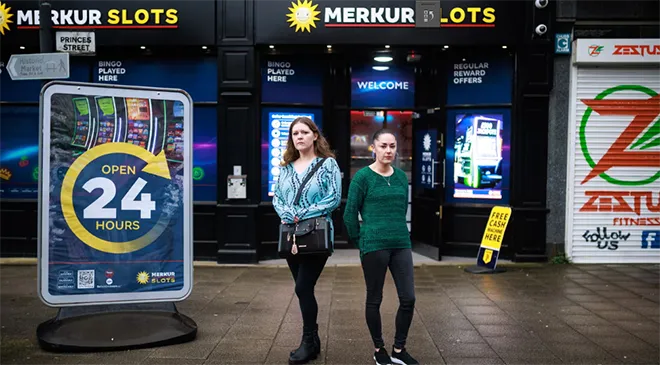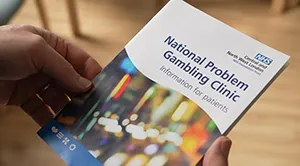 Wendy Hughes and her daughter, Jackie Olden, spoke with the Guardian on Hughes’s struggles with gambling addiction and how the issue was exacerbated by the actions of staff working at a Stockport adult gaming centre operated by Merkur.
Wendy Hughes and her daughter, Jackie Olden, spoke with the Guardian on Hughes’s struggles with gambling addiction and how the issue was exacerbated by the actions of staff working at a Stockport adult gaming centre operated by Merkur.
Hughes began gambling in 2008 as part of her duties as a member of staff at a Coral-branded bookmaker. Reportedly, management urged staff to play digital roulette machines to “generate interest.” Hughes had never gambled before and was known to be exceptionally careful with money. Yet, the exposure to the fixed odds machines triggered an interest in gambling that eventually spiralled into addiction.
As reported by the Guardian, Hughes did attempt to combat this through a self-exclusion service that prevents gamblers from wagering at sportsbooks. However, although the self-exclusion scheme is nationwide, it does not extend to adult gaming centres (AGCs) that are permitted to operate B3 gaming machines. Such an establishment is where Hughes began to gamble once other wagering venues became inaccessible to her.
Merkur Argues the Fault Lies with Individual Staff Members
 After a lung cancer diagnosis last year, Hughes’s struggles with addiction worsened, with internal records of Merkur showing that one of her gambling sessions in November 2023 lasted for nearly 12 hours and that she eventually incurred total losses of almost £2,000 in less than two days.
After a lung cancer diagnosis last year, Hughes’s struggles with addiction worsened, with internal records of Merkur showing that one of her gambling sessions in November 2023 lasted for nearly 12 hours and that she eventually incurred total losses of almost £2,000 in less than two days.
Typically, AGCs are required to implement responsible gambling measures in cases such as Hughes’s, and the Merkur establishment does indeed have such rules in place, according to the company. Yet, as opposed to acting on the behaviour Hughes was exhibiting by making an effort to stop her, staff members made no attempt to enforce restrictions and even fed into her spending habits.
Merkur’s response included an offer to refund the losses suffered during the aforementioned gambling session. The said payment would have amounted to a little over £1,980, but Olden refused to accept it as she considers the amount to be both insufficient given Hughes’s overall losses and not reflective of the role Merkur had in her mother being exposed to gambling harm. A focus was placed on an internal memo that deemed Hughes’s cancer not to have impaired her “cognitive ability” and was therefore not relevant to her incurred losses.
The Guardian reached out to Merkur, and the company clarified that Merkur had reported the situation to the UKGC this January and that the business’ customer interaction measures had been in line with UK regulations. According to Merkur, staff members had failed to perform their duties, and as a result, they recently underwent retraining.
NHS Gambling Health Service Expands to Sheffield with Opening of New Clinic
 NHS gambling clinics are among the biggest factors that contribute towards recovery from gambling harm in the UK. The closest clinic to Stockport is that of Manchester, and the said gambling clinic is among the various service centres that are located across the UK.
NHS gambling clinics are among the biggest factors that contribute towards recovery from gambling harm in the UK. The closest clinic to Stockport is that of Manchester, and the said gambling clinic is among the various service centres that are located across the UK.
In 2019, the NHS published a long-term plan (LTP) in which the opening of 15 gambling clinics in the UK was outlined as a goal set to be met by 2023/24. Last week’s opening of a gambling clinic in Sheffield marks the completion of this pledge.
According to NHS CEO Amanda Pritchard, the expansion is in line with increasing demand for gambling clinics’ services, given the seriousness of gambling addiction and how it can be destructive. She also commented on how mainstream sports has recently led to an increase in problem gambling cases. Claire Murdoch, who serves as the NHS’s mental health director, further spoke about how the UK Government needs to be stricter with its regulations to prevent UK youth and future generations “from being bombarded by gambling advertisements while watching sport.” Murdoch concluded her statement by encouraging gamblers to pay a visit to a clinic or reach out to their GPs if they have concerns.
- Author


